-
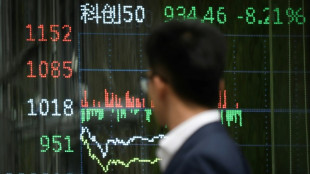 China vows to stay 'safe and promising land' for foreign investment
China vows to stay 'safe and promising land' for foreign investment
-
Stocks savaged as China retaliation to Trump tariffs fans trade war
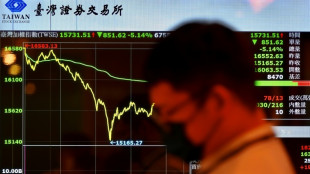
-
 Unification Church appeals Japan's decision to revoke legal status
Unification Church appeals Japan's decision to revoke legal status
-
Belgian prince seeks social security on top of allowance

-
 European airlines hit turbulence over Western Sahara flights
European airlines hit turbulence over Western Sahara flights
-
Boeing faces new civil trial over 2019 Ethiopian Airlines crash
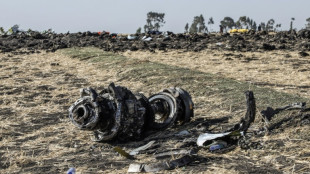
-
 'Fear and anxiety': Bangkok residents seek quake-proof homes
'Fear and anxiety': Bangkok residents seek quake-proof homes
-
Injuries threaten to derail Bayern's home final dreams against Inter

-
 Real Madrid vulnerability evident ahead of Arsenal clash
Real Madrid vulnerability evident ahead of Arsenal clash
-
Texans warily eye impact of Trump's tariffs on their beloved trucks

-
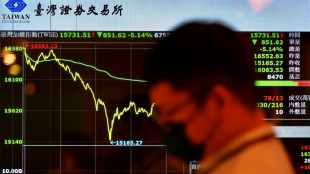 Equities savaged as China retaliation to Trump tariffs fans trade war
Equities savaged as China retaliation to Trump tariffs fans trade war
-
Sara Duterte back in Philippines after month with detained father

-
 Netanyahu and Trump to talk tariffs, Iran and Gaza
Netanyahu and Trump to talk tariffs, Iran and Gaza
-
Max power, Tsunoda's mixed debut, quick Kimi: Japan GP talking points

-
 Luis Enrique's revolution leaves PSG stronger without the superstars
Luis Enrique's revolution leaves PSG stronger without the superstars
-
Messi on target but Miami held by lowly Toronto

-
 Inter's bold treble bid bumps up against past glory at Bayern Munich
Inter's bold treble bid bumps up against past glory at Bayern Munich
-
Sagstrom digs deep to win LPGA Match Play

-
 The music industry is battling AI -- with limited success
The music industry is battling AI -- with limited success
-
New app hopes to empower artists against AI

-
 Haiti jazz festival is rare respite for violence-racked capital
Haiti jazz festival is rare respite for violence-racked capital
-
Johnson satisfied after opening Grand Slam series event

-
 China would have agreed TikTok deal if not for US tariffs: Trump
China would have agreed TikTok deal if not for US tariffs: Trump
-
Pulsar Helium Announces Notice of 2025 Annual General and Special Meeting of Shareholders

-
 Guardian Metal Resources PLC Announces Operations Update
Guardian Metal Resources PLC Announces Operations Update
-
Market panic mounts as world scrambles to temper Trump tariffs

-
 Harman keeps calm in the winds to clinch Texas Open
Harman keeps calm in the winds to clinch Texas Open
-
Doncic scores 30 as Lakers rout Thunder

-
 Qualifier Brooksby stuns Tiafoe to win first ATP title
Qualifier Brooksby stuns Tiafoe to win first ATP title
-
McLaughlin-Levrone seals Grand Slam jackpot with 400m victory

-
 Juventus miss out on Serie A's top four with Roma draw
Juventus miss out on Serie A's top four with Roma draw
-
Marseille, Strasbourg win in Ligue 1 to close in on Champions League

-
 Pegula wins WTA Charleston after Kenin collapse
Pegula wins WTA Charleston after Kenin collapse
-
Second US child dies of measles, almost 650 ill: officials

-
 Thousands attend funeral of legendary Malian musician Amadou
Thousands attend funeral of legendary Malian musician Amadou
-
Gaza rescuers say Israeli strikes kill 44

-
 Alcaraz admits pressure to take Sinner's number one ranking 'killed' him
Alcaraz admits pressure to take Sinner's number one ranking 'killed' him
-
US storms, 'devastating' flooding death toll climbs to 17

-
 Ovechkin achieves the 'impossible'
Ovechkin achieves the 'impossible'
-
Comeback man Siraj's 4-17 helps Gujarat to hat-trick of IPL wins

-
 Ovechkin scores 895th goal to clinch all-time NHL record
Ovechkin scores 895th goal to clinch all-time NHL record
-
No 'killer instinct' as Man Utd, Man City play out derby stalemate

-
 Siraj's 4-17 helps Gujarat to hat-trick of IPL wins
Siraj's 4-17 helps Gujarat to hat-trick of IPL wins
-
Man City held by Man Utd in derby stalemate

-
 'Minecraft Movie' strikes gold to dominate N.America box office
'Minecraft Movie' strikes gold to dominate N.America box office
-
World scrambles to temper Trump tariffs as market fears mount

-
 Strasbourg close in on Champions League with Ligue 1 win at Reims
Strasbourg close in on Champions League with Ligue 1 win at Reims
-
Toulouse overpower Sale to reach rugby Champions Cup last eight

-
 Slot shocked by sloppy Liverpool errors in Fulham defeat
Slot shocked by sloppy Liverpool errors in Fulham defeat
-
Zelensky slams US lack of response to Putin truce rejection
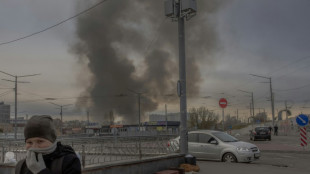
| SCS | -0.56% | 10.68 | $ | |
| BCE | 0.22% | 22.71 | $ | |
| RIO | -6.88% | 54.67 | $ | |
| BCC | 0.85% | 95.44 | $ | |
| CMSC | 0.13% | 22.29 | $ | |
| JRI | -7.19% | 11.96 | $ | |
| CMSD | 0.7% | 22.83 | $ | |
| NGG | -5.25% | 65.93 | $ | |
| AZN | -7.98% | 68.46 | $ | |
| RBGPF | 100% | 69.02 | $ | |
| BTI | -5.17% | 39.86 | $ | |
| RELX | -6.81% | 48.16 | $ | |
| GSK | -6.79% | 36.53 | $ | |
| BP | -10.43% | 28.38 | $ | |
| VOD | -10.24% | 8.5 | $ | |
| RYCEF | -18.79% | 8.25 | $ |
How important is sustainable development?
Economic growth and environmental protection: a balancing act with potential for the future?
At a time when climate change and environmental degradation are among the most pressing global challenges, many countries are faced with the question of how to grow economically while remaining environmentally friendly. This challenge requires innovative approaches and a reorientation of traditional economic practices.
Sustainable economic management is the key:
Sustainable economic management means using resources in such a way that the needs of the present generation are met without compromising the ability of future generations to meet their own needs. This includes integrating environmental aspects into all economic decisions. Companies and governments must consider environmental sustainability an integral part of their operations, not an added cost factor.
Promoting green technologies:
Technological progress plays a crucial role in reconciling economic growth and environmental protection. Investing in renewable energies such as wind, solar and hydroelectric power not only reduces greenhouse gas emissions, but also creates new jobs and industries. Countries that embrace green technologies early on can gain a competitive advantage and reduce their dependence on fossil fuels.
Implement a circular economy:
The traditional linear economic model – produce, consume, dispose – leads to resource waste and pollution. The circular economy, on the other hand, aims to keep materials and products in use for as long as possible, minimising waste and conserving resources. By recycling, reusing and repairing, countries can both ease the burden on the environment and reap economic benefits.
Setting the political framework:
Governments play a crucial role in creating incentives for environmentally friendly economic activity. This can be done by providing tax breaks for sustainable companies, investing in green infrastructure or setting stricter environmental standards. A prominent example is carbon pricing, which incentivises companies to reduce their emissions and invest in environmentally friendly alternatives.
Promoting education and awareness:
A shift towards a sustainable economy also requires a change in the way society thinks. Education programmes can raise awareness of environmental issues and empower the next generation to make sustainable choices. Environmentally conscious consumers can urge companies to adopt more sustainable practices.
Strengthen international cooperation:
To effectively address global environmental issues, cooperation between countries is essential. International agreements such as the Paris Climate Accord set targets for reducing greenhouse gas emissions and promote the exchange of technologies and knowledge. Through joint efforts, countries can both benefit economically and contribute to protecting the planet.
Conclusion:
reconciling economic growth and environmental protection is not an impossible task, but a necessity for a sustainable future. By promoting green technologies, implementing the circular economy, taking appropriate policy measures and cooperating internationally, countries can embark on a path that ensures both economic prosperity and the preservation of our environment. It is up to governments, businesses and individuals to actively shape this change.

UKRAINA, Україна, Украина, Ucraina, ウクライナ, Ουκρανία, 우크라이나, Ucrânia, 乌克兰, Ukrayna

Ukraine: War terror of the russian army!

War crime by the Russians: Thousands without drinking water in Ukraine

We thank the Heroes of Ukraine!

Arab League reinstates Syrian membership after a 12-years

Turkey's President Erdogan shows he is ready for a fight

Россия - это государство без будущего!

Три тупые свиньи: Пригожин, Шойгу и Путин!

Perverted Russian gets a bashing as flag thief

Россия: Кто придет после преступника Путина?

Thank you Ukraine for the destruction of the Russian terror soldiers!



